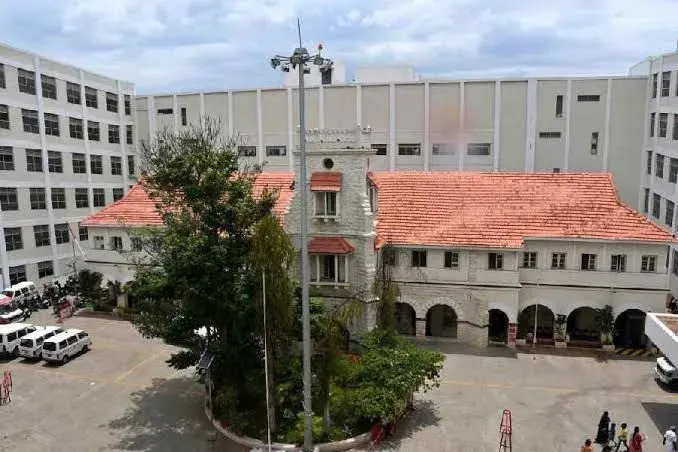Will TN's Coimbatore Medical College Hospital Launch a Skin Bank for Burn Victims?

Synopsis
Key Takeaways
- Establishment of a skin bank at CMCH to aid burn victims.
- Focus on collecting skin from deceased donors for grafting.
- Aims to reduce infection risks and accelerate healing.
- First skin bank in western Tamil Nadu, second in the state.
- Will serve Coimbatore and surrounding districts.
Chennai, July 9 (IANS) In a significant advancement in burn treatment, Coimbatore Medical College and Hospital (CMCH) in Tamil Nadu is set to establish a specialized skin bank on its premises to address the rising demand for skin grafts among patients.
The hospital, which sees an average of five burn victims daily, is currently drafting a comprehensive proposal for the initiative, which will soon be submitted to the Tamil Nadu state government. This proposed facility will focus on the collection and preservation of skin from deceased donors, allowing for timely grafting procedures for patients with severe burns.
This crucial intervention not only speeds up healing but also greatly diminishes the risks of infection and pain associated with critical burn injuries.
Officials at CMCH have noted that thermal burns represent nearly 86 percent of the total burn cases requiring hospitalization at the facility. Despite progress in treatment methods, the lack of a skin bank in the area has posed significant challenges in delivering prompt and effective care.
“The establishment of a skin bank will revolutionize the management of burn injuries. Currently, donor skin is in short supply, leading many patients to wait or seek treatment in other cities,” stated a senior plastic surgeon at CMCH.
Skin grafting is essential for treating third-degree burns, especially when large body areas are impacted. The availability of preserved donor skin can provide critical time for patients, allowing for improved recovery outcomes and reduced complication rates.
The proposal from CMCH will detail the infrastructure, equipment, and staffing needs required to operate the skin bank.
CMCH is also expected to partner with other institutions that have established skin banks for technical guidance and training.
If approved, this skin bank will be the first of its kind in western Tamil Nadu and the second in the state, following the one in Chennai.
Health professionals and burn specialists across the region have lauded this initiative as a crucial step in enhancing critical care services in government hospitals. Once operational, the skin bank is anticipated to benefit not only Coimbatore but also surrounding districts, providing essential support to hundreds of burn victims each year.








